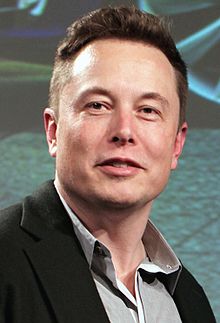Ray Kurzweil
See the following -
10 Promising Technologies Assisting the Future of Medicine and Healthcare
Technology will not solve the problems that healthcare faces globally today. And the human touch alone is not enough any more, therefore a new balance is needed between using disruptive innovations but still keeping the human interaction between patients and caregivers. Here are 10 technologies and trends that could enable this...
- Login to post comments
Open Source is Helping to Drive the Artificial Intelligence Renaissance
 We're only a few days into 2017, and it's already clear that one of the biggest tech categories of this year will be artificial intelligence. The good news is that open source AI tools are proliferating and making it easy for organizations to leverage them. AI is also driving acquisitions. As Computerworld is reporting, in the past year, at least 20 artificial intelligence companies have been acquired, according to CB Insights, a market analysis firm. MIT Technology Review is out with its five big predictions for AI this year. Here is a bit on what they expect, and some of the open source AI tools that you should know about...
We're only a few days into 2017, and it's already clear that one of the biggest tech categories of this year will be artificial intelligence. The good news is that open source AI tools are proliferating and making it easy for organizations to leverage them. AI is also driving acquisitions. As Computerworld is reporting, in the past year, at least 20 artificial intelligence companies have been acquired, according to CB Insights, a market analysis firm. MIT Technology Review is out with its five big predictions for AI this year. Here is a bit on what they expect, and some of the open source AI tools that you should know about...
- Login to post comments
Ray Kurzweil: This is your future
...technologies to reprogram the "software" that underlie human biology are already a thousand times more powerful than they were when the genome project was completed in 2003...<--break-> Read More »
- Login to post comments
Will Octobot Transform Medicine?
 Acclaimed futurist Ray Kurzweil has a lot of bold predictions (including that computers will become smarter than us within a few decades), and some of his most interesting ones deal with how technology -- especially nanotechnology -- will soon totally revamp how we manage our health, leading to longer, healthier lives and hugely increased intelligence. Sounds like science fiction, right? Meet Octobot. Harvard researchers have unveiled what they describe as the "first autonomous, entirely soft robot," which they call Octobot (it has eight arms, like an octopus). It has no metal, no battery, no electronics of any sort, yet manages to move under its own power. It uses a "microfluidic logic circuit" rather than a circuit board to control the movements of its arms and to power itself along, using gas reactions...
Acclaimed futurist Ray Kurzweil has a lot of bold predictions (including that computers will become smarter than us within a few decades), and some of his most interesting ones deal with how technology -- especially nanotechnology -- will soon totally revamp how we manage our health, leading to longer, healthier lives and hugely increased intelligence. Sounds like science fiction, right? Meet Octobot. Harvard researchers have unveiled what they describe as the "first autonomous, entirely soft robot," which they call Octobot (it has eight arms, like an octopus). It has no metal, no battery, no electronics of any sort, yet manages to move under its own power. It uses a "microfluidic logic circuit" rather than a circuit board to control the movements of its arms and to power itself along, using gas reactions...
- Login to post comments